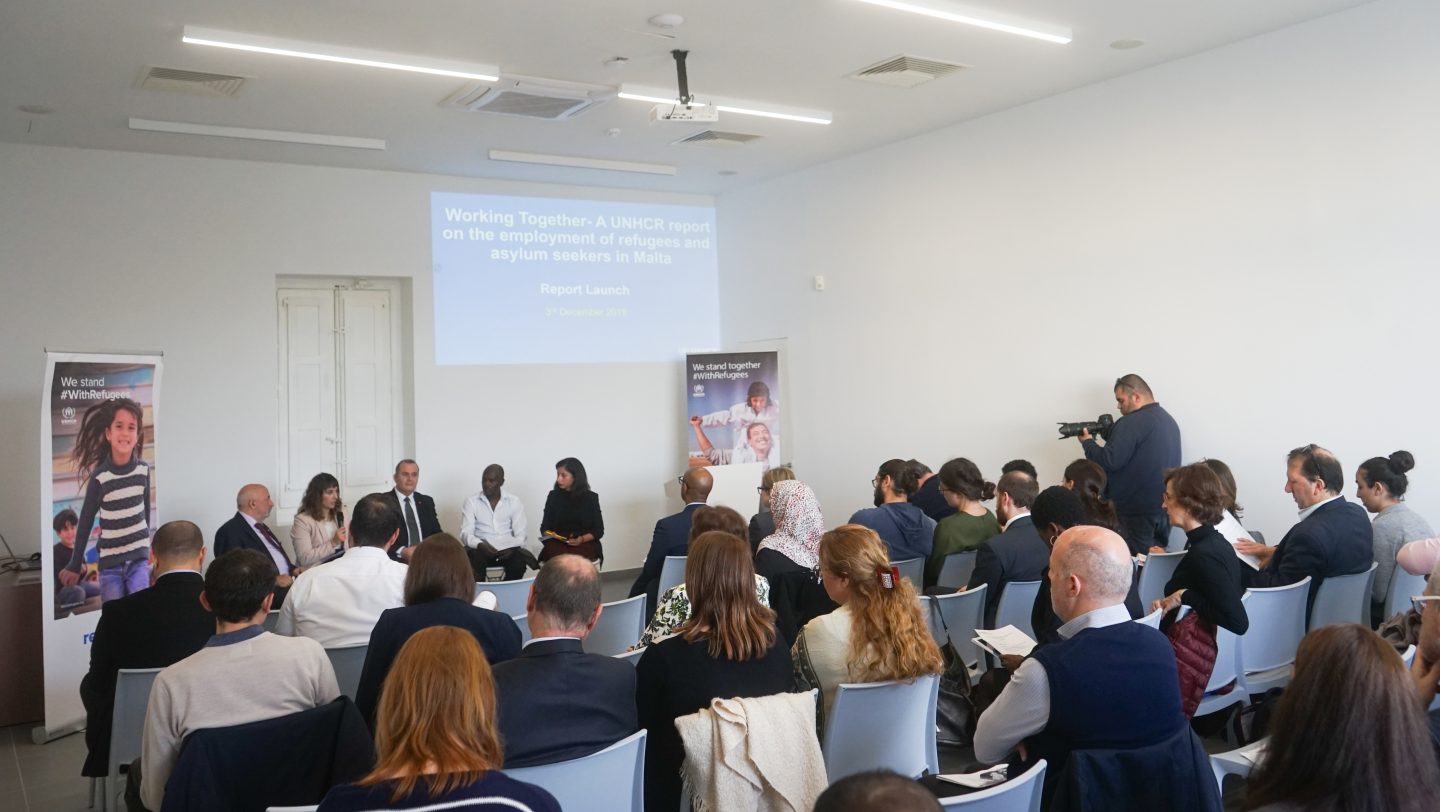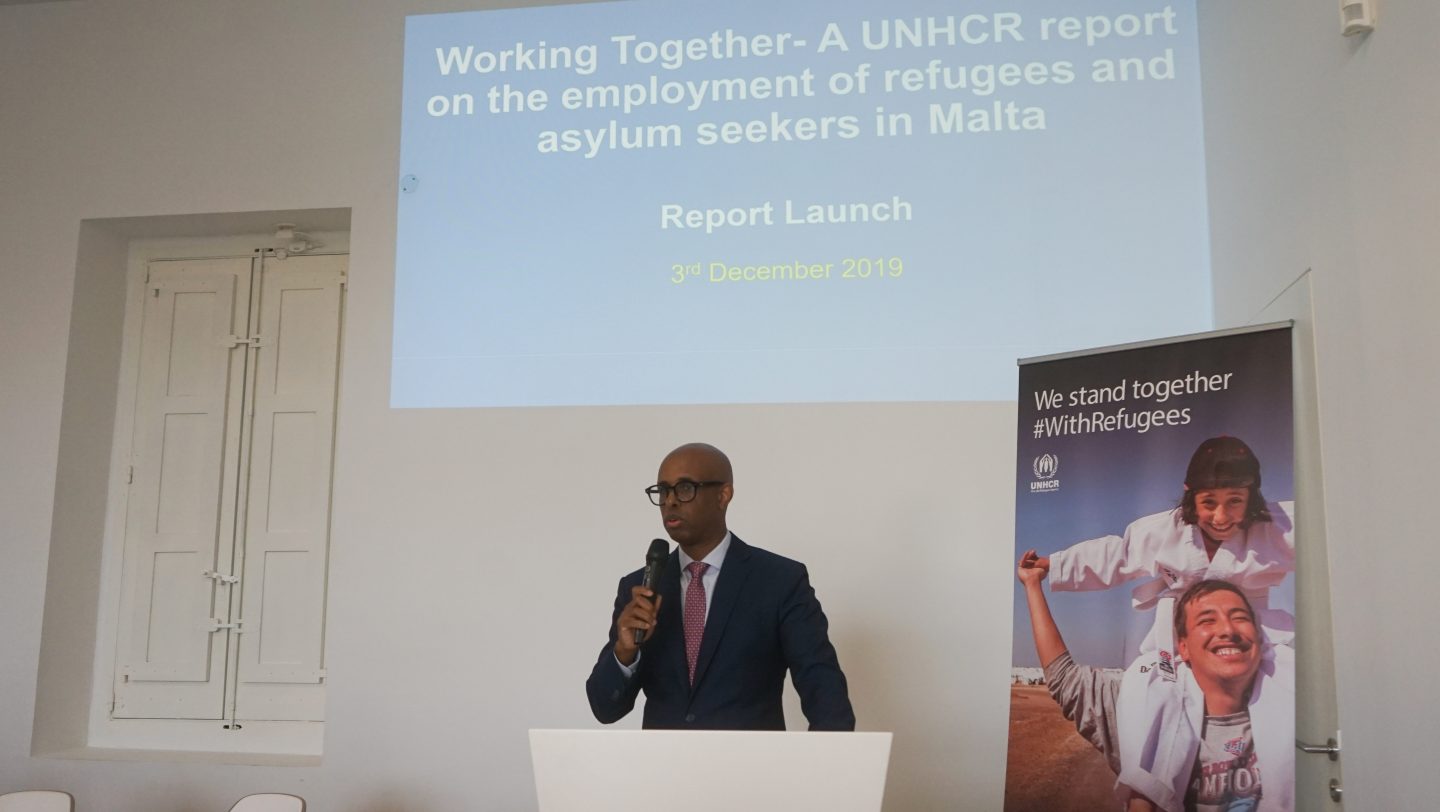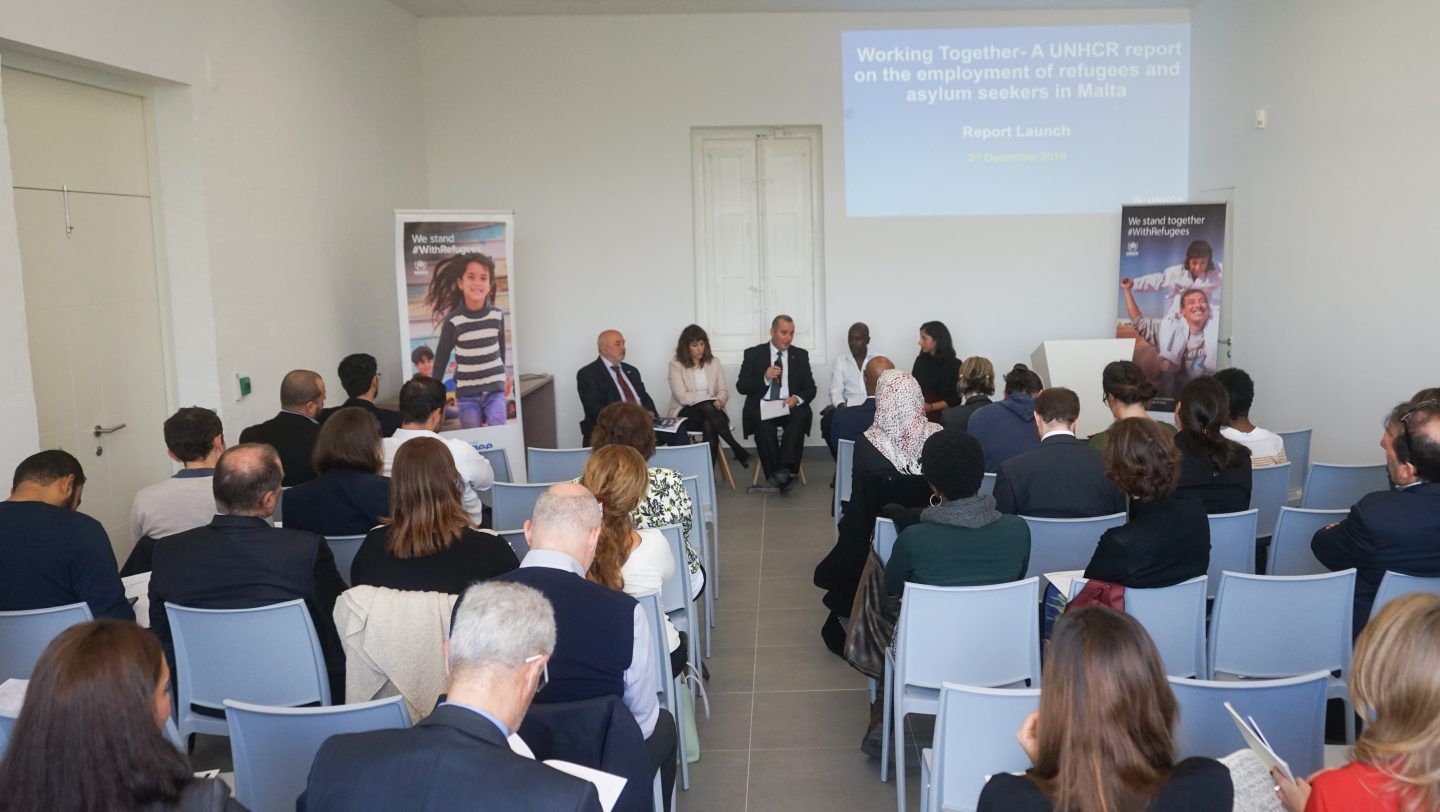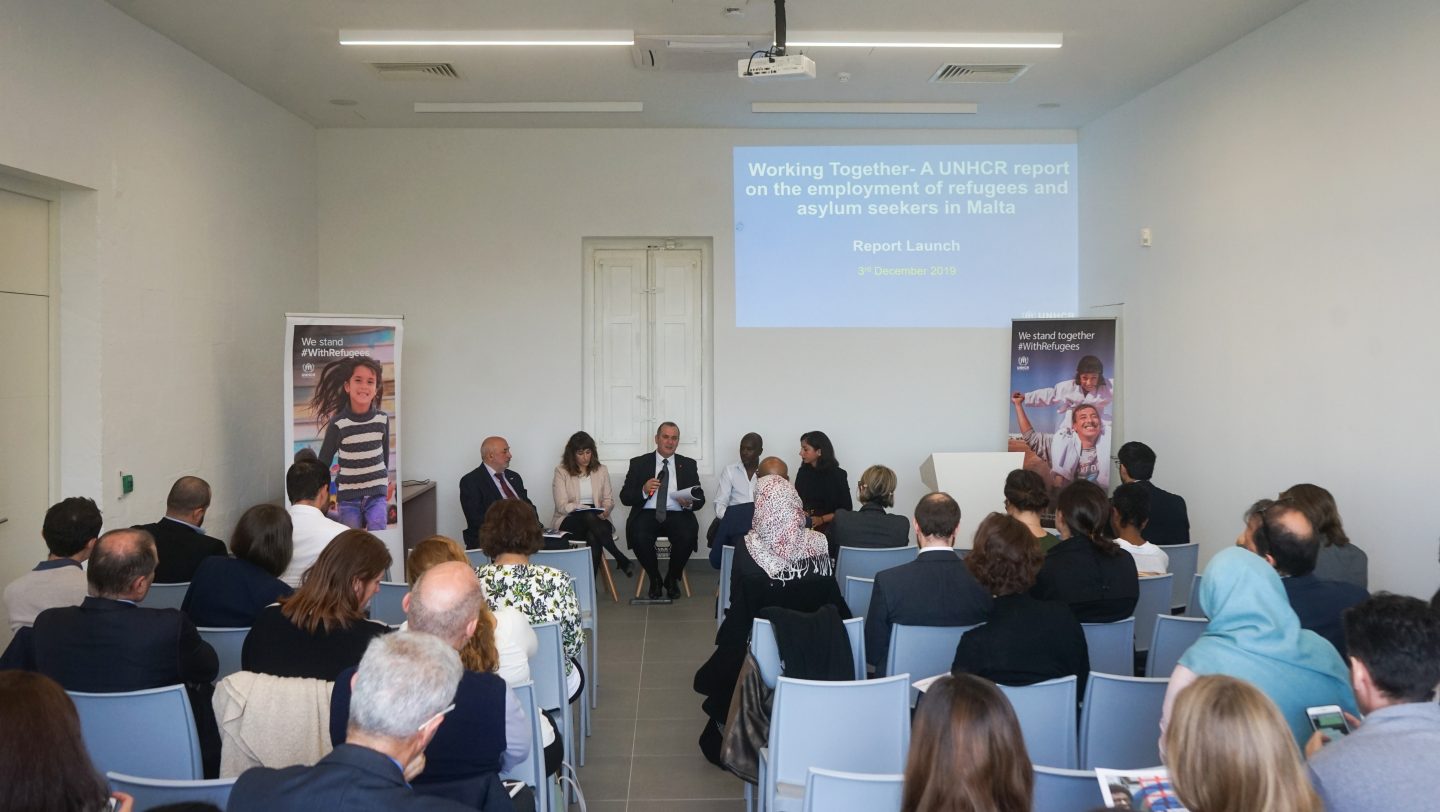Working Together – A UNHCR Report on the employment of refugees and asylum seekers in Malta
The UN Refugee Agency (UNHCR) Office in Malta launches report focusing on the employment of refugees and asylum seekers.
The UN Refugee Agency (UNHCR) Office in Malta launched ‘Working Together – A UNHCR report on the employment of refugees and asylum seekers in Malta‘ on Tuesday 3 December at a business networking conference.
This report aims to assist employers, employees, policymakers, government and non-government organisations and other stakeholders by outlining the challenges and also the opportunities found in employing refugees from both the employer and the employee perspectives.
The report was possible with the support of other stakeholders such as Jobsplus, the Malta Employers’ Association (MEA), the Jesuit Refugee Service (JRS) and African Media Association Malta (AMAM).
The report highlights a number of positive actions but also identifies challenges and provides a number of recommendations.
“Employment is one of the most important factors of integration. Having a gainful job, with all the rights and entitlements associated with, is an important marker for self-sufficiency, harnessing the economic potential and skills of refugees and creating a win-win situation”
Kahin Ismail, UNHCR Representative to Malta
Main findings in the report:
- POSITIVE ACTIONS
1.1 Service-providers are extending their services to refugees:
UNHCR commends the support of service-providers and encourages further awareness through the use of public events and campaigns of success stories related to integration through employment.
1.2 Employers and human resources staff are recognising the need to adapt to a multicultural workplace
UNHCR encourages further support such as site-specific language courses and cultural training to be given to those who employ refugees.
1.3 Success stories both from the employers’ and the employees’ side emerged
UNHCR encourages the development of appropriate tools to bridge the gap between refugees and employers through outreach, career guidance and job-matching events.
- MAIN CHALLENGES AND CORRESPONDING RECOMMENDATIONS:
2.1 Lack of clarity or information and administrative challenges regarding the correct procedures in applying for a work permit
Main recommendations:
- Disseminate clear and concise information regarding how to recruit refugees and apply for the corresponding work permits depending on status.
- Reduce costs concerning the application and renewal of work permits.
2.2 Poor grasp of English, Maltese and IT among refugees
Main recommendations:
- Circulate booklets and deliver courses targeting work-specific technical vocabulary.
- Employers to provide refugees with support at work, such as opting for a bilingual team leader and providing site-specific language courses.
2.3 Urgent need for courses on cultural orientation, employment rights and current services
Main recommendations:
Provide information on required work conditions, the work permit and employees’ rights and
obligations.
- Deliver tailor-made courses on cultural orientation, required work conditions and employees’ rights and obligations under Maltese law.
2.4 Recognition of qualifications and skills
Main recommendations:
- Establish a body to assess and recognise the skills of refugees who do not have recognized
certificates or refugees who no longer have the certificates in their possession.
- Promote vocational testing and provide on-the-job training, apprenticeships and internships.
2.5 Employers are adapting to a multicultural workplace but finding difficulties
Main recommendations:
- Provide employers and all staff with information and training on working in a multicultural
environment.
- Provide continuous on-the-job training, mentoring and post-placement support for refugees.
2.6 Refugees with protection in Italy or other Member States (MS) who are unable to work in Malta
Main recommendations:
- UNHCR will continue to advocate among policymakers for a way to regularise the employment of refugees with protection in other MS in order to eliminate the illegal employment that widely exists but is not acknowledged and the associated exploitation and abuse of workers.
- UNHCR encourages all stakeholders who share this concern to advocate with policymakers and employers’ associations to put in place legal pathways to employ refugees with protection in other MS.
2.7 Opening of bank accounts
Main recommendations:
- Raise awareness and assist with the dissemination of information among refugees, employers, NGOs and other stakeholders on the payment account and its basic features.
- Train desk officers on the different types of status and the corresponding documentation, as well as the rights of persons with international protection to open basic bank accounts as per Legal Notice 411 of 2016.
2.8 Discrimination and racism
Main recommendations:
- Create public educational campaigns targeting equality and combating discrimination.
- Promote the employment of refugees
Click here to download the report (PDF).
Share on Facebook Share on Twitter






